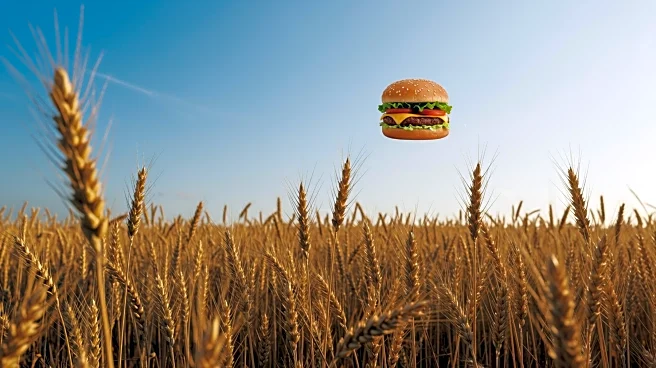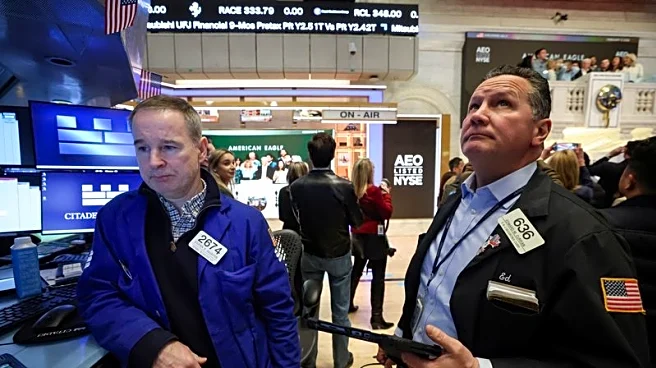What's Happening?
The cost of burgers and other red meats has increased significantly, driven by climate change and its impact on agriculture. Methane emissions from cattle, a potent greenhouse gas, contribute to global warming, which in turn affects weather patterns and agricultural productivity. Droughts and extreme weather conditions have led to reduced pasture land, forcing ranchers to spend more on feed, thereby increasing beef prices. The number of cattle in the U.S. has decreased, leading to higher meat prices. This phenomenon, termed 'climate inflation,' is expected to continue affecting food prices.
Why It's Important?
The rising cost of beef due to climate change has broader implications for the U.S. economy and consumers. As beef prices increase, consumers may face higher grocery bills, affecting household budgets. The agricultural industry is under pressure to adapt to changing climate conditions, which could lead to shifts in farming practices and economic strategies. The concept of 'climate inflation' highlights the potential for climate change to disrupt economic stability, influencing not only food prices but also insurance and other basic goods. This situation underscores the need for sustainable practices and policies to mitigate climate impacts.
What's Next?
As climate change continues to affect weather patterns, the agriculture industry may need to adopt new technologies and sustainable practices to cope with these challenges. Policymakers and industry leaders might focus on reducing methane emissions and promoting plant-based diets as a way to lessen environmental impact. Consumers may also see a shift towards more plant-based options in restaurants and grocery stores as a response to rising meat prices. The ongoing dialogue around climate change and its economic effects is likely to intensify, prompting further action and adaptation strategies.
Beyond the Headlines
The increase in beef prices due to climate change raises ethical and cultural questions about dietary habits and environmental responsibility. The push towards plant-based diets not only addresses environmental concerns but also reflects a cultural shift towards more sustainable living. This transition could have long-term implications for the food industry, consumer behavior, and global efforts to combat climate change. The concept of 'climate inflation' may also lead to increased awareness and advocacy for climate action, influencing public policy and corporate strategies.












